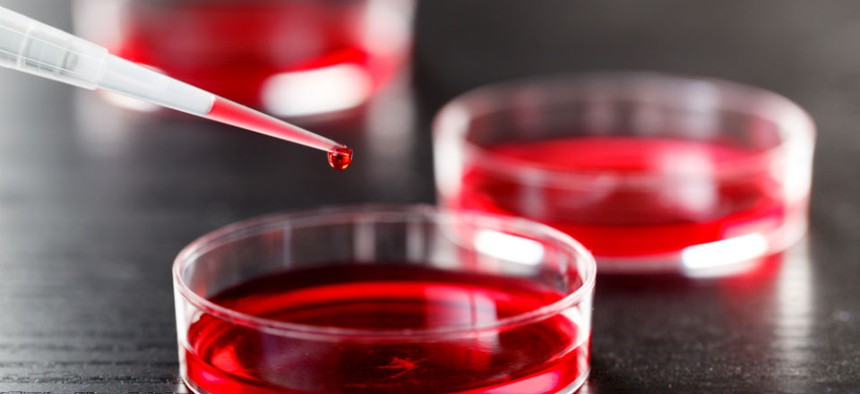Boston Considers Banning Deadliest Pathogens From New Biolab

luchschen/Shutterstock.com
Downtown biodefense lab wants to study some of the world's deadliest disease agents.
Boston is set this week to debate whether to ban a new, downtown biodefense laboratory from studying some of the world's deadliest disease agents.
A Wednesday city council hearing is expected to consider a proposed citywide prohibition on so-called "Biosafety Level 4" research, which can involve diseases for which there are no known cures. The initiative marks the latest local pushback against Boston University's effort to pursue the sensitive pathogen studies at its recently completed National Emerging Infectious Diseases Laboratories.
In his draft ordinance, Councilor Charles Yancey said conducting such research at the site could enable an agent such as Ebola or Marburg to escape into the city, either by accident or deliberate action.
"I am not convinced we really need to invite that possibility to the city of Boston," Yancey told the Boston Globe in remarks published in a Sunday editorial.
Boston University has criticized the rationale behind the council measure, arguing that the laboratory's security is stringent and any sensitive research justified by the need to prepare against lethal disease agents.
A four-year risk study "considered hundreds of possible scenarios that could potentially result in an exposure of a worker to a pathogen, or the release of a biological agent [and] demonstrated conclusively that BSL-4 laboratories -- built with multiple backup redundancies for its operations systems -- are extremely safe," the university said in a statement last month.
Sunday's Globe editorial sides with the school, and argues that the site's location would facilitate collaboration with experts throughout the region.
"It's understandable why critics of the biolab might prefer that the research take place in an isolated facility ... [but that] would impede scientists' ability to learn from one another," the newspaper said.
NEXT STORY: Tech Unemployment Falls to 2.7 Percent





